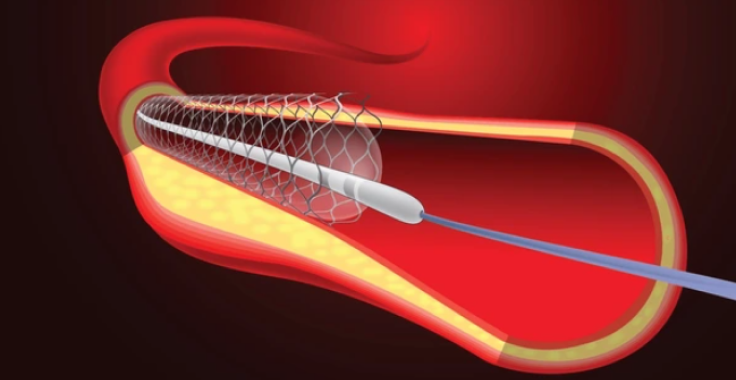Indications for Angioplasty
Our expert cardiologists at Manipal Hospitals recommend angioplasty when arteries become significantly narrowed or blocked, restricting blood flow. Symptoms that indicate the need for this procedure include:
-
Chest pain (angina): A tight, squeezing, or burning sensation in your chest, especially during physical exertion.
-
Shortness of Breath: Difficulty breathing, even during mild activity, due to reduced oxygen supply to the heart.
-
Pain in Arms, Neck, Jaw, or Back: Discomfort that may radiate from the chest due to inadequate blood flow.
-
Frequent Dizziness or Fatigue: Feeling lightheaded or excessively tired due to reduced oxygen-rich blood reaching vital organs.
-
Leg pain or Cramping (claudication): Pain while walking, indicating poor circulation in peripheral arteries.
-
Non-Healing Wounds on Feet or Legs: Poor blood supply can slow healing, increasing the risk of complications.
Is there Any Age Criteria for Angioplasty?
-
Angioplasty is not strictly limited by age but is recommended based on overall health, severity of artery blockage, and risk factors. Older adults can safely undergo angioplasty if they meet medical criteria.
-
Lifestyle modifications and medications may be explored in younger individuals before considering the procedure.
-
If you have uncontrolled symptoms despite medication, angioplasty is an effective treatment regardless of age.
A thorough evaluation, including imaging tests and risk assessment, determines your eligibility for the procedure. Our experienced cardiologists in Manipal Hospitals Bangalore will weigh the benefits against potential risks to ensure the safest and most effective outcome.
What are the Different Types of Angioplasty procedure?
-
Coronary Angioplasty Procedure: Coronary angioplasty treats blockages in the arteries supplying blood to the heart. It is performed when narrowed coronary arteries reduce oxygen supply, leading to angina or a heart attack. A stent is often placed to prevent re-narrowing. This procedure improves heart function, reduces chest pain, and lowers the risk of future cardiac events.
-
Carotid Angioplasty Procedure: Carotid angioplasty is performed on the carotid arteries in your neck, which supply blood to the brain. It is recommended when these arteries are significantly narrowed, increasing the risk of stroke. A balloon widens the artery, and a stent prevents further narrowing. This procedure is a crucial preventive measure for those at high risk of stroke.
-
Peripheral Angioplasty Procedure: Peripheral angioplasty opens narrowed arteries in the legs, arms, or other peripheral areas. It is commonly performed to treat peripheral artery disease (PAD), which causes leg pain, cramping, or ulcers due to poor circulation. The procedure restores blood flow, alleviating pain and reducing the risk of complications like gangrene.
-
Renal Angioplasty Procedure: Renal angioplasty is performed on the arteries supplying blood to the kidneys. Narrowing of these arteries can lead to high blood pressure and kidney damage. This procedure improves kidney function and helps control hypertension caused by poor renal circulation. A stent is often used to ensure long-term patency.
-
Iliac Angioplasty Procedure: Iliac angioplasty treats blockages in the iliac arteries, which supply blood to the lower body. Narrowing in these arteries can cause leg pain, numbness, or difficulty walking. By restoring blood flow, this procedure significantly improves mobility and reduces symptoms of vascular insufficiency.
-
Femoral Angioplasty Procedure: Femoral angioplasty is performed on the femoral artery in the thigh, a key blood vessel supplying the legs. Blockages in this artery can cause severe leg pain and mobility issues. Angioplasty restores circulation, helping to prevent ulcers, infections, and, in severe cases, amputation.
-
Subclavian Angioplasty Procedure: This procedure targets blockages in the subclavian arteries, which supply blood to the arms. Reduced blood flow can cause weakness, numbness, or arm pain. It restores normal circulation, improves arm function, and prevents complications like subclavian steal syndrome.
Checklist: Preparing for Angioplasty surgery
Before the procedure, you will receive detailed instructions from your doctor. You may need to:
-
Avoid eating or drinking for several hours before the procedure.
-
Inform your doctor about any medications you take, particularly blood thinners, as adjustments may be required.
-
If you have allergies to contrast dye or iodine, inform your doctor.
-
Routine tests such as blood work, an ECG, and imaging scans will be conducted to assess your overall health and guide the procedure.
Following all pre-procedure instructions will help minimise risks and ensure a smooth angioplasty experience.
What Happens During Angioplasty?
Angioplasty is performed under local anaesthesia with mild sedation.
-
Using imaging technology, a catheter is inserted into a blood vessel
-
A small incision is made at the access site, usually in the groin or wrist.
-
A catheter is carefully guided through the blood vessels to the narrowed artery.
-
Contrast dye is injected to visualise the blockage, and a balloon is inflated to widen the artery. A stent may be placed to maintain long-term blood flow. You may feel a brief warm sensation as the dye is injected.
-
A small balloon at the tip of the catheter is then inflated to widen the artery. In most cases, a stent is placed to keep the artery open.
-
Once the artery is restored, the balloon is deflated and removed.
The procedure typically lasts between 30 minutes and two hours, depending on the complexity of the treated blockage.
What Happens After Angioplasty Procedure?
Following angioplasty,
-
You will be monitored for several hours to ensure stability and prevent complications such as bleeding at the catheter site.
-
Mild discomfort or bruising at the access point is expected. Depending on your condition, you may be discharged the same day or after an overnight stay.
-
Strenuous activities should be avoided for a few days.
-
Cardiology doctors will provide guidelines on medications, including blood thinners, to prevent clot formation.
-
Lifestyle changes, including a heart-healthy diet and regular exercise, are crucial to maintaining long-term vascular health and preventing further artery narrowing.
Benefits of Angioplasty
-
Reduces risk of heart muscle damage and helps in restoration of blood flow
-
Improvement in symptoms like fatigue, breathlessness and angina also reduces the risk of stroke
-
It involves less health risks, low risk of infection and faster recovery
-
Sustainable procedure with long-term patency usually lasting up to 15 years or more
Why Choose Manipal Hospital Bangalore for Angioplasty?
With an impressive record of about 7,000+ angioplasty procedures over the past two years across Manipal Hospitals Bangalore, they have demonstrated extreme commitment to precise and caring treatment of interventional cardiology and vascular diseases. This remarkable achievement has placed Manipal Hospitals as one of the best hospitals for angioplasty in Bangalore, with clinical excellence and unwavering dedication to patient care, making them a trusted leader in cardiac interventions. By choosing Manipal Hospital for your angioplasty, you are assured of:
-
Advanced Cath Labs – The Cath Labs with state-of-the-art imaging tools and interventional instruments deliver precise and accurate diagnosis and procedural execution.
-
Expert Cardiologists & Vascular Specialists – A team of highly skilled and experienced interventional cardiologists and vascular surgeons in Bangalore provides complex, high-risk angioplasty treatment to patients.
-
Personalised Treatment Approach – Every patient receives personalised assessments and plans curated by the top cardiologists in Bangalore that help select the safest angioplasty interventions to match their specific medical needs.
-
Minimally Invasive & Faster Recovery - Angioplasty procedure approach uses minimal invasion of tissues while enabling patients to return to regular activities without delay.
-
Emergency Cardiac Care - Manipal Hospitals Bangalore provides Emergency Cardiac Care through its 24/7 service for sudden cardiac events to enable prompt medical treatments as needed.
Selecting the best hospital is crucial for the health of your heart and vascular system. Avail the best care for Angioplasty in Bangalore at Manipal Hospitals, where experienced cardiologists, advanced technology, and expert care come together.
Meet Our Specialists

































